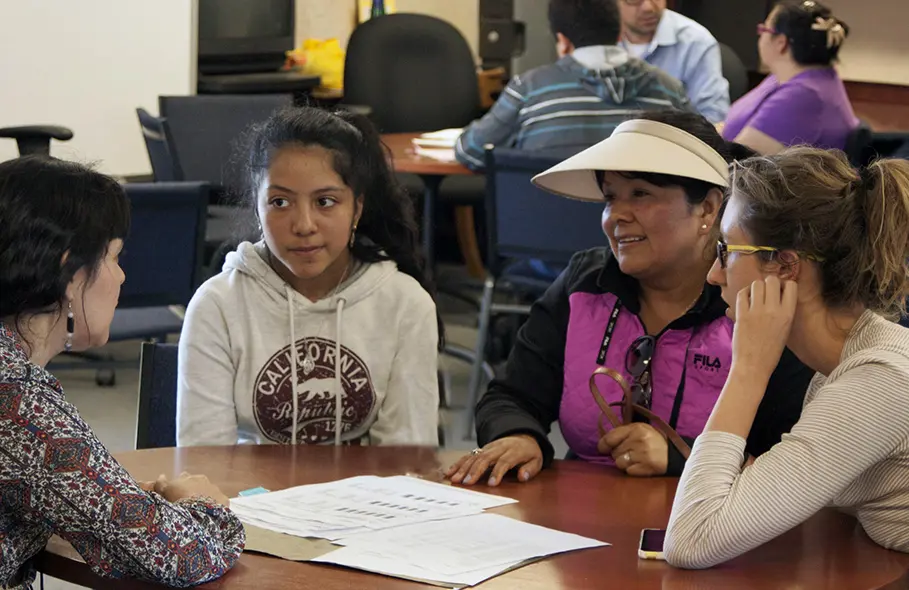U. of I. Faculty Team Tackles Statewide IEP Interpreter Shortage
by Tom Hanlon / Apr 12, 2023

Interpreters for Individualized Education Programs (IEPs) will be more readily available in all school districts throughout the state of Illinois, thanks to a new training program funded by the Illinois State Board of Education (ISBE).
A multidisciplinary team at the University of Illinois Urbana-Champaign is developing four training modules: language proficiency evaluation (both English and the target language), special education terminology and procedures training, interpreter training (along with some sight translation), and a final exam to confer qualification. The web-based modules will be both asynchronous and synchronous, depending on the training.

Hedda Meadan-Kaplansky, Margaret Joy Smale Valpey Professor in Special Education, says a team from the Department of Special Education in the College of Education is developing the training, professional development, and examination content specific to special education and IEP topics for the modules.
The work is being funded for five years and $5M.
“Including an interpreter with knowledge of special education in IEP meetings will promote equal access to education and services to all students, ensure that parents and guardians of students with disabilities fully participate in IEP meetings and the decision-making process, and that students’ needs and goals are appropriately addressed,” says Meadan-Kaplansky.

“Children of immigrants are often pressed into service as interpreters for their parents,” says Kiel Christianson, department chair and professor in Educational Psychology, also in the College of Education. “This is a tough thing to ask of a child, and it is especially unfair if the child is being asked to interpret for their own IEP meeting. And parents should know and understand how educators are planning to help their children.”
Others involved at the university include Professors Joyce Tolliver, Reynaldo Pagura, and Xun Yan (Liberal Arts & Sciences).
The team is beginning with the five most-spoken non-English languages in Illinois: Spanish, Polish, Arabic, Urdu, and Russian. A website and training schedule is being developed.
“Several other states either have or are planning to implement a similar law regarding interpreters,” Christianson says. “We’re hoping that we will be able to share our program and protocols with those states and others to eventually help children, parents, and teachers throughout the country.”